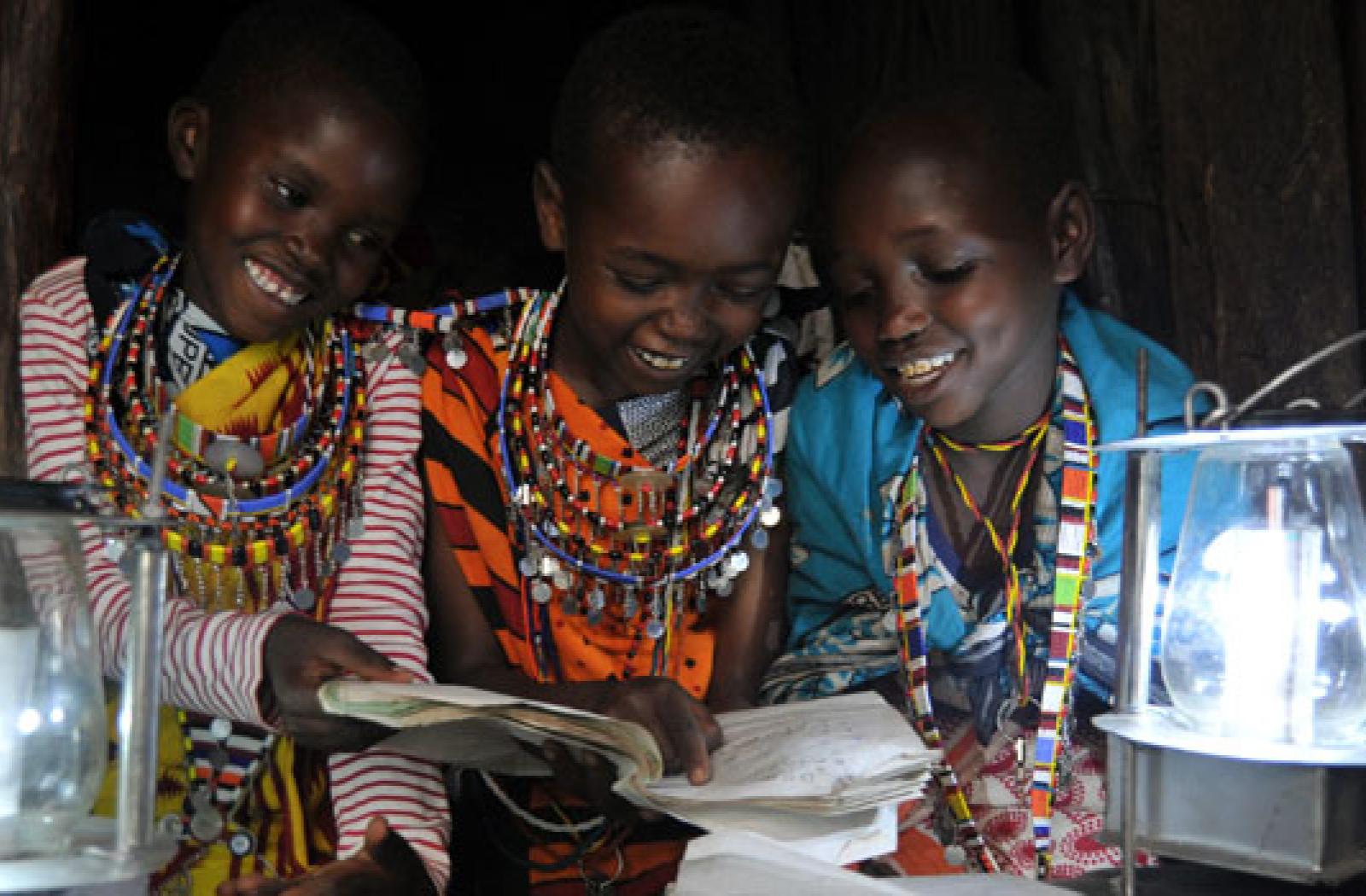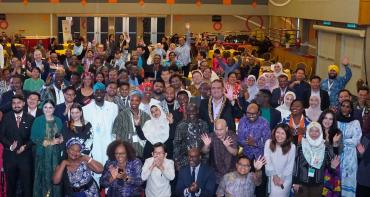Commonwealth Youth Award winner Evans Wadongo talks about how his award will help Kenya’s schoolchildren

Commonwealth Youth Award winner Evans Wadongo talks about how his award will help Kenya’s schoolchildren
As a child growing up in a rural village in Kenya with no electricity or running water at home, Evans Wadongo would finish his homework by the dim light of a kerosene lamp.
The fumes from the kerosene fuel would go on to permanently damage his eyesight and Evans saw homes burn down from kerosene fires. At a minimum daily cost of KSh20-30, buying kerosene fuel keeps many families in poverty.
Despite the challenges Evans faced in completing his studies, he went on to study at university. It was while he was experimenting with LED Christmas lights in his dorm room that he came across an idea that would help schoolchildren and their communities.
Evans created an LED light powered by solar energy, which he dubbed ‘Mwangabora’ – ‘Good Light’.
The lamps are made using locally sourced material and cost US$25. Over 120,000 people have been impacted so far by the work of Evans’ organisation Sustainable Development For All Kenya (SDFA-Kenya), which organises the production and distribution of the lamps.
These lights have not only helped schoolchildren to complete their homework, they have also allowed families to use the money previously spent on kerosene fuel to start businesses.
In recognition of his work, Evans was awarded £5,000 in March this year as the winner of the 2012 Commonwealth Youth Awards for Excellence in Development Work.
He plans to use the grant to provide lamps for children in pastoral communities in Northern Kenya so they can attend night classes once their daily duties are done at home.
“Girls in these communities have to not only take care of livestock during the day but also complete other household tasks, like collecting fire wood,” said Evans. “They do not get the chance to attend school. It’s great for us to try and help them acquire an education.”
Night classes or ‘shepherd classes’ start at 5pm. SDFA-Kenya sets up the classes, provides meals, sports equipment and learning materials for the students and stipends for teachers. The lamps are not only used by children to finish their studies when they get home, they also ward off wild animals as the children walk back from school. Around 280 children are already benefitting from the scheme and Evans hopes the Commonwealth grant will aid another 220 children by the time the next school year starts in January 2014.
The grant will also go towards helping communities to start their own businesses. Women are encouraged to pool the resources which would normally have been spent on kerosene fuel. If they can raise 70% of the money to start their own business, SDFA-Kenya, using the Commonwealth grant, will provide the other 30% and advice. Each woman in the group also receives a free lamp.
“This will have a big impact on education in the area because parents will have an alternative source of income other than agriculture,” said Evans. “They will be able to send their children to regular school rather than needing them to work at home. It will also help with overcoming conflict in the area due to communities fighting over pasture.”
The ‘Economically Empowering Women Project’ has already been working in several communities in Kenya and businesses have been started in mushroom, crop, poultry, sugarcane and goat farming.
Evans has also helped young people become more self-sufficient and participants in the development of their own communities.
Through SDFA-Kenya’s youth resource centre in Kisumu, young people are trained in both technical and vocational skills so they can design and make their own solar lamps and other renewable products. The lamps are distributed among local communities and the other products sold with the help of SDFA-Kenya. Over 400 young people have been trained and supported to start their own small businesses. The project has also been extended to another Commonwealth country, Malawi, where SDFA-Kenya trains students at the Jacaranda School for Aids Orphans in Limbe to make solar lanterns.
“If you keep things to yourself you’re not making an impact,” said Evans. “By training young people to make their own lamps they are creating and developing things that I would not have done myself. It also helps these young people to have a sense of leadership, that they can take an initiative and make it their own. It makes the impact of our work much faster.”
During the Commonwealth awards ceremony in London, Evans met other young entrepreneurs who are creating change in their communities and they discussed setting up their projects in other Commonwealth countries.
“The challenges facing young people are quite similar in different regions of the Commonwealth. At the awards the finalists exchanged a lot of ideas and we will hopefully find ways to work together,” he said.
“Some young people lack information about how to start their own business. Mentorship is critical, which I have been doing quite a lot myself. Creating more platforms for them to tell their own stories is also something that can really help.
“The Commonwealth is a good platform for young people to engage among themselves and with leaders to create a better development agenda for their country and The Commonwealth.”
In the coming months the 2013 Commonwealth Youth Awards for Excellence in Development Work finalists will be announced. Evans’ encouraged the winners “to use this platform to create bigger goals in whatever you are doing and to encourage other young people to collaborate with each other”.
Among his many accolades, Evans was awarded a place among the 2013 MIT Technology Review 35 Innovators Under 35.



